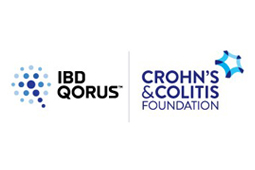
At the MedStar Health Inflammatory Bowel Disease (IBD) Center, we understand that IBD can affect people at any stage of life, disrupting their personal, professional, and social experiences. We work together with our IBD patients to provide them with the best medical and surgical care. Our goals are to:
- Control the disease progression and symptoms
- Prevent disease complications
- Minimize medication side effects
- Achieve the best quality of life
Conditions treated and services offered
The IBD Center treats all types of IBD conditions, including:
- Indeterminate colitis
- Pouchitis
- Microscopic enterocolitis; lymphocytic and collagenous enterocolitis
- Eosinophilic gastroenteritis
- Diarrhea
Our patients benefit from the full range of diagnostic, therapeutic, and surgical approaches to IBD care. We offer high-tech imaging, minimally invasive approaches, the latest prescription medications, and a spectrum of lifestyle and nutrition supports.
IBD and women’s health
IBD largely affects young people, and women make up 50 percent of all IBD cases. Subsequently, IBD can affect different aspects of a woman’s health at different stages of her life and of her disease. At our IBD center, we strive to educate our female IBD patients about how the disease can affect:
- Contraceptive method choice
- Fertility
- Cervical health
- Pregnancy and delivery
- Bone health
We provide strategies on how to manage the disease during the pregnancy and postpartum period and how to avoid negative pregnancy outcomes and medication side effects. The gastroenterology team works closely with our high-risk obstetrician and the patient’s primary obstetrician to ensure the best pregnancy outcome. We also work closely with our women’s health center and division of endocrinology to assess and treat our patients for osteoporosis and osteopenia. (Bone loss may occur because of the disease or the medications used to control the disease).
Treatment
For patients with Crohn’s disease or ulcerative colitis, our treatment options include oral anti-inflammatory medications, infusion and injection therapy. We understand these medications can be a struggle to attain. With the help of our centralized MedStar Specialty Pharmacy experts, we are able to attain the right medication for you when you need it. When coupled with quality care coordination, these options can help patients with IBD successfully treat symptoms, avoid complications of their disease, and potentially reverse the damage caused by inflammation.
How can I participate in a clinical trial for ulcerative colitis and Crohn’s disease?
Call 202-719-0761 to schedule a visit to discuss whether you qualify for one of our trials in ulcerative colitis and Crohn’s disease.
IBD health maintenance
In addition to caring for your disease, our goal is to prevent complications to your overall health from the disease and the medications you are using. We ensure you get appropriate vaccinations and screening for different conditions.
Videos
Our multidisciplinary inflammatory bowel disease (IBD) team

Every member of our team has specialized expertise in treating IBD patients. The IBD Center also cares for the highest volume of patients with IBD in the entire Washington, D.C., area—meaning that our clinicians and researchers have unparalleled experience in this specialty. Our team’s depth of clinical knowledge is key to helping patients achieve their best possible outcomes. We understand that each patient's situation is unique, and our IBD Center offers second opinions on how to manage complex and challenging situations.
The MedStar Georgetown IBD Center patients participate in IBD Qorus.
Patients at the IBD Center benefit from a collaborative clinical approach. Gastroenterologists, surgeons, radiologists, and pathologists come together at multidisciplinary IBD rounds to discuss and review the details of each patient's case and devise the best plan of care. All of the clinicians at these team meetings have specific expertise in managing and treating IBD patients.
The gastroenterologists on our IBD team also work closely with other physicians throughout the MedStar Health network and across clinical specialties, including:
-
Pediatric gastroenterology: The Department of Pediatrics at MedStar Health includes a gastroenterology division that cares for children and adolescents with IBD. We ensure that the transition from pediatric care to adult care is progressive and smooth, keeping your records and your care within the same institution.
Our providers

Expert gastroenterology care
Getting the care you need starts with seeing one of our gastroenterologists.










